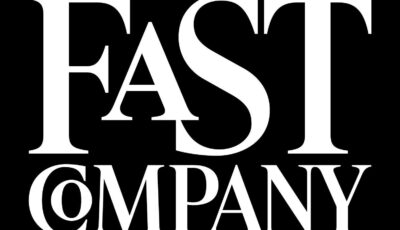While the run-up to a consequential presentation or meeting may induce dread or panic, there are actionable tools you can use to alleviate the worst of the anxiety and set yourself up for success.
Originally published for Fast Company November 23, 2021
The days before a big presentation, an important meeting, or a one-on-one with a supervisor can be brutal. Even if you aren’t prone to fear public speaking, a critical or high-stakes event can invoke pre-traumatic stress that can range from unpleasant to nearly incapacitating. The manifestations of nerves (avoidance, lack of focus, disrupted sleep) are all impediments to your ultimate goal of presenting your message and yourself in the best possible way.
Here are a few ways to address that anxiety head-on and refocus your efforts.
Divide and conquer
With such an event on the horizon, anxiety can skew your perspective, making the task seem outsized, and almost insurmountable. When this happens, it becomes difficult to prepare in a way that is helpful to you (you may want to throw your hands up entirely and just hope for the best).
One solution to this is to start by reminding yourself of the actual time you are expected to be speaking. For example, if your meeting is an hour, recognize that an hour is a limited amount of time. No matter how unpleasant you may be imagining this event, one hour is over in just one hour.
Now that you have that perspective, break down the event into even smaller pieces, concentrating on which pieces are creating the most anxiety. If it is a matter of preparation, you’ll know this is where you can focus nervous energy. If you are sensing that you’re experiencing imposter syndrome, you may do well to reflect on this and seek support.
Whatever the cause of anxiety, breaking it down into more manageable pieces is the first step towards finding purposeful actions that will improve your outcome and alleviate some of the stress that public speaking and presenting at work can induce.
Release control
Uncertainty is at the root of much of the anxiety we experience surrounding public speaking and presenting at work. I would never advocate abandoning preparation and practice. But no matter how much work we put in ahead of time, there are always factors we can’t control.
As Dr. Elliot Cohen explains in Psychology Today, “The crux of the problem is the demand for certainty in a world that is always tentative and uncertain. It is precisely this unrealistic demand that creates the anxiety.”
Perfectionism, or simply attempting to control the outcome and reaction to your presentation, will inevitably create anxiety and fear that your results will deviate from your goal. Relinquishing the need for control over the uncontrollable is the way to alleviate the anxiety of uncertainty.
This seems like a big ask, and it is (philosophers have been contemplating this for millennia, see: Stoicism, Buddhism, Taoism). But we start simply by just reminding ourselves to breathe, practice mindfulness, and stay open and flexible to obstacles that may become opportunities. Then, a hostile question can become a chance to exhibit your expertise, a flubbed sentence can become a chance to smile and reveal your humanity, a PowerPoint error can give you the chance to speak off the cuff with more authenticity and power.
Embracing the uncertain may sound cliché, but it is through the uncertainty that you can achieve something you have not yet imagined.
Use a carrot
Once you’ve made it through your event (and you will), find a way to reward yourself for the effort. Perhaps it is a dessert at lunch, a fancy cocktail after work, or just a little more time with your favorite hobby.
The trick is to give yourself a nice dopamine rush. And then make this rush a habitual tool for every presentation, stressful meeting, or speaking event.
Triggering dopamine through self-reward allows you to control and develop a motivation-reward-reinforcement cycle. Each subsequent high-stakes event will become attached to positive association. This will add to your motivation in the lead-up and help refresh and renew your energy after you’ve achieved your goal.
While the run-up to a consequential presentation or meeting may induce dread or panic, there are actionable tools you can use to alleviate the worst of the anxiety and set yourself up for success.

